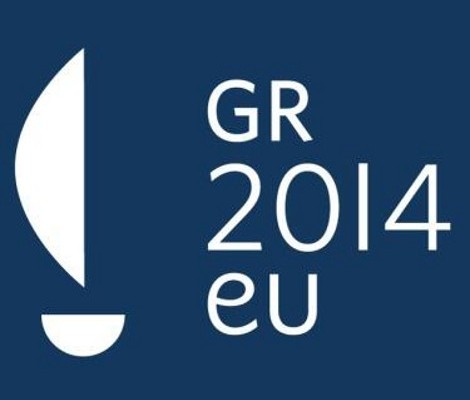By EuroActive
Crisis-ridden Greece took over the reins of the European Union on Wednesday (1 January) with a record low budget dedicated to its EU presidency of €50 million set as the “absolute maximum” the presidency is planning to spend in the forthcoming six months.
Aided by a shorter calendar due to the European Parliament elections in May this year, the Greeks are nonetheless making a few significant cuts, hoping to “set a trend” for future presidencies.
Unlike their predecessors and their own previous presidencies, the Greeks are hiring only national civil servants and will outsource no activities.
“Only nine people were recruited for the Athens office,” spokesman Alexandros Vidouris explained, adding that there would also be "very few people" in the permanent representation in Brussels: "156 persons compared to the usual 250 for presidencies.”
“Everything is done in-house, by local companies and employees,” Vidouris said. Athens has launched a sponsorship programme to cover a great deal of the expenses. Local private companies will sponsor vehicles for presidency-related transport and the national Aegean Airlines will sponsor air tickets for the traditional presidency trips.
The Greek EU logo, a sailboat symbolising Europe’s “common quest and journey” and hinting at one of their central priorities – maritime policies, was designed by local young entrepreneurs and cost €12,500 as opposed to the average of €150,000 usually spent on presidency logos, Vidouris claimed.
>> Read also: Troubled Greece prepares for spartan EU presidency
Athens will also be sober when it comes to hosting various informal ministerial meetings, an opportunity that national governments usually seize on to promote their country by holding the reunions in colourful places.
“Don’t expect meetings in exotic islands," said Vidouris, "all informal meeting will be held in the same venue in Athens, a conference centre, where everything is already in place and doesn’t require important extra costs.”
Only the informal foreign affairs ministers meeting, Gymnich, will be hosted in the outskirts of Athens, in a different venue, at the request of the High Representative, Catherine Ashton, who is presiding over the Council.
Athens has however not renounced the usual “presidency trip” for journalists, a tradition that allows media representatives to visit the host country’s prime minister and ministers twice a year.
“It will be an informative trip without much tourism, except for a visit of the Acropolis museum. A number of journalists are paying for themselves, the rest of the tickets are sponsored by Aegean airlines and the hotel is the one used by the presidency,” the spokesman for the Greek rotating presidency assured.
Gifts labeled with the presidency logo should not be expected either, following the firing of a Greek official in connection with a tender for the traditional ties and scarves, Reuters reported.
“We want to keep the costs down and focus on substance,” said Vidouris.
EU elections
In terms of substance, the highlight for the first half of the year is without any doubt the European elections to be held in all 28 countries. In May, 375 million EU citizens are expected to cast their vote to elect their new representatives for the European Parliament.
The major European political families are expected for the first time to nominate their candidate for the job of European Commission’s President. This will shorten the calendar of activities for the Greek rotating presidency considerably.
All trilogues – the name for the legislative negotiations between the three main EU institutions – will have to be held in the first trimestre of 2014, with the last plenary session of the European Parliament taking place on 17 April.
The most important part of the work will have to be done in the following three and a half months, the rest will be left to Italy who will take over the EU reins on 1 July and will be the first presidency to welcome the new members of the Parliament and the Commission.









